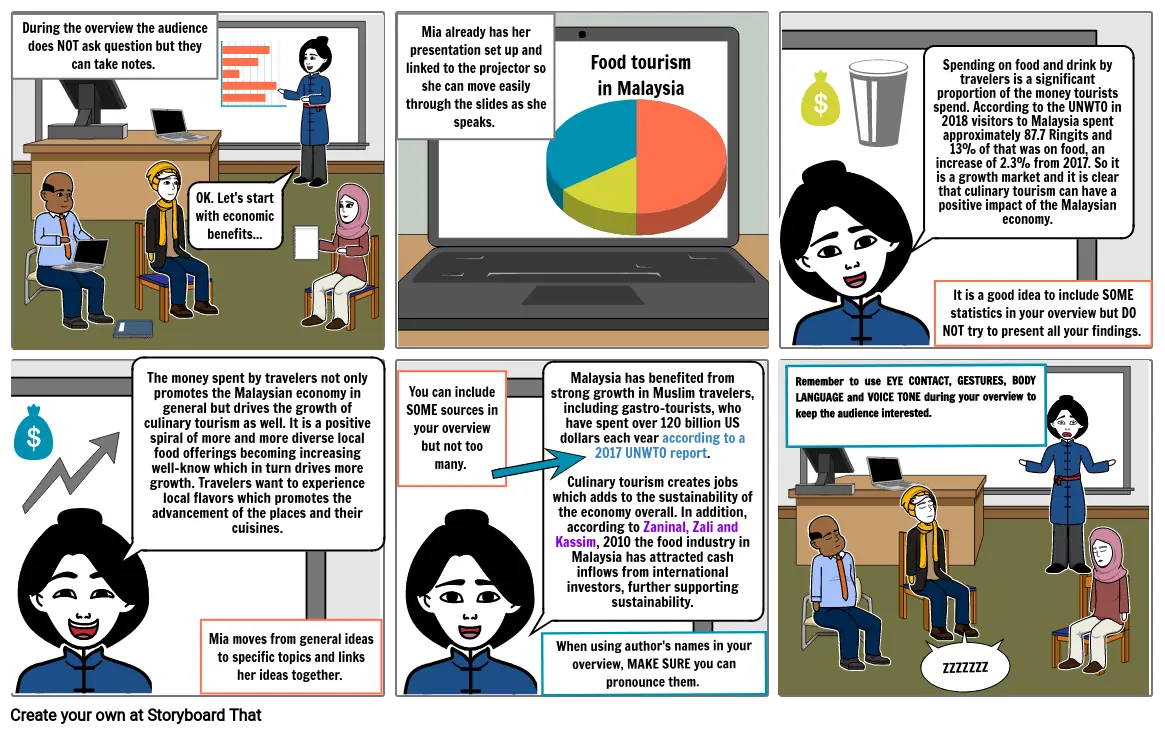Literature Defence 2

Storyboard Text
- During the overview the audience does NOT ask question but they can take notes.
- OK. Let's start with economic benefits...
- Mia already has her presentation set up and linked to the projector so she can move easily through the slides as she speaks.
- Food tourism in Malaysia
- Spending on food and drink by travelers is a significant proportion of the money tourists spend. According to the UNWTO in 2018 visitors to Malaysia spent approximately 87.7 Ringits and 13% of that was on food, an increase of 2.3% from 2017. So it is a growth market and it is clear that culinary tourism can have a positive impact of the Malaysian economy.
- It is a good idea to include SOME statistics in your overview but DO NOT try to present all your findings.
- The money spent by travelers not only promotes the Malaysian economy in general but drives the growth of culinary tourism as well. It is a positive spiral of more and more diverse local food offerings becoming increasing well-know which in turn drives more growth. Travelers want to experience local flavors which promotes the advancement of the places and their cuisines.
- Mia moves from general ideas to specific topics and links her ideas together.
- You can include SOME sources in your overview but not too many.
- Malaysia has benefited from strong growth in Muslim travelers, including gastro-tourists, who have spent over 120 billion US dollars each year according to a 2017 UNWTO report.Culinary tourism creates jobs which adds to the sustainability of the economy overall. In addition, according to Zaninal, Zali and Kassim, 2010 the food industry in Malaysia has attracted cash inflows from international investors, further supporting sustainability.
- When using author's names in your overview, MAKE SURE you can pronounce them.
- Remember to use EYE CONTACT, GESTURES, BODY LANGUAGE and VOICE TONE during your overview to keep the audience interested.
- ZZZZZZZ
Over 30 Million Storyboards Created
No Downloads, No Credit Card, and No Login Needed to Try!
